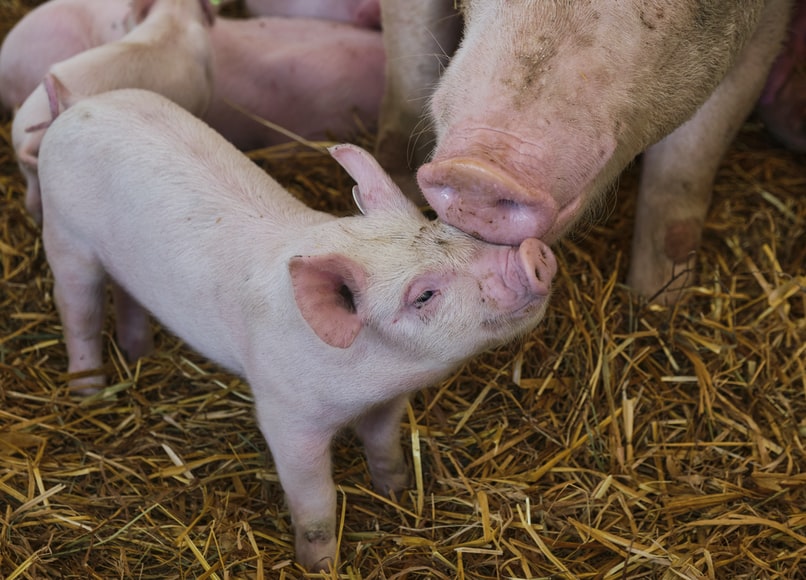Millions of animals suffer every day on EU farms. Factory farming, where animals are kept in cages or other forms of close confinement and routinely subjected to painful mutilations such as beak-cutting and tail-docking, is a living nightmare. It is also a disaster for the environment and a real threat to public health.
Given this reality, every opportunity for improving animal welfare legislation should be welcomed with open arms. Unfortunately, this cannot be said of the Implementation Report on on-farm animal welfare that the European Parliament adopted at its plenary session this week. The report, drawn up on the assembly’s own initiative, is so inadequate that the only credible path Parliament could have taken was to reject it.
Despite its purported focus on animal welfare, the text does little more than call for farmers to be given more money to maintain the cruel status quo.
It reads as if it was written 50 years ago. It manages to completely disregard both the horrific cruelty to animals inherent in the intensive farming system that prevails today and the concerns of the overwhelming majority of the European public for whom protecting the welfare of farmed animals is important.
It overlooks the climate and biodiversity crisis our planet is facing, which is due in no small part to the greenhouse gas emissions, deforestation and pollution contributed by our agricultural system.
Moreover, the whole thrust of the report ignores both the EU’s current drive to create a food system that is fair, healthy and environmentally-friendly, as set out in the European Commission’s ‘Farm to Fork’ strategy, and the Commission’s stated intention of revising EU animal welfare legislation next year with the aim of improving animal welfare and banning caged farming. The report thus misses the opportunity to make a positive contribution to that process.
A deeply flawed report
In its input to the report, Parliament’s Environment Committee formulated recommendations that sought to address the climate and biodiversity crisis as well as the rise of antimicrobial resistance and other crucial issues. Most importantly, it called for a fundamental shift in our agricultural system away from factory farming and towards extensive animal agriculture as one of the quickest and most effective ways to improve on-farm animal welfare.
Regrettably, Parliament’s Agriculture Committee, which had the lead on the report, has turned a deaf ear to these suggestions. Its text gives little space to animal welfare issues, and the few paragraphs that do address them represent more a step backwards than an improvement. A statement in the report that “some measures believed to improve animal welfare may in fact be counterproductive and undermine other aspects of sustainability” encapsulates its general hostility to improving animal welfare.
Despite the numerous well-documented violations of EU animal welfare legislation across Europe, the report warns against drawing general conclusions that such abuse is widespread.
It even goes as far as implying that the force-feeding of geese and ducks in the production of foie gras “respect the animals’ biological parameters and comply with animal welfare criteria” — thus contradicting not only the view of countless animal welfare experts but also of Parliament’s own resolution last year calling for a ban on force-feeding, which it termed “cruel and unnecessary”.
In addition, the report fails to safeguard animal welfare by giving great emphasis to the promotion of a voluntary labelling scheme for animal products that leaves dangerous room for manoeuvre to farmers and industry.
More concerned with farmers’ revenues
Instead of addressing ways to improve on-farm animal welfare, what the report does is talk a lot about farmers (they are mentioned no fewer than 65 times!), particularly in connection with phrases like “support and financing needed”, “additional public aid”, “clear return on investment” and “remunerating farmers’ efforts”. It is manifestly more concerned with farmers’ finances than the well-being of their animals.
While Compassion in World Farming EU absolutely supports the provision of financial incentives for farmers to meet higher animal welfare standards, it is doubtful many European taxpayers would consider that handing over extra cash for nothing in return was money well spent.
The European Parliament claims to represent the citizens of Europe, and poll after poll shows that one of their major concerns is improving animal welfare.
By approving a report that ignores those concerns of citizens, the message the Parliament sends is that it is completely out of step with the times. At this point, the European Commission has only one option if it wants to retain its credibility: ignore this deeply flawed report, consigning it to oblivion, and proceed with an ambitious proposal to strengthen animal welfare rules in line with the wishes of the vast majority of Union’s citizens.


